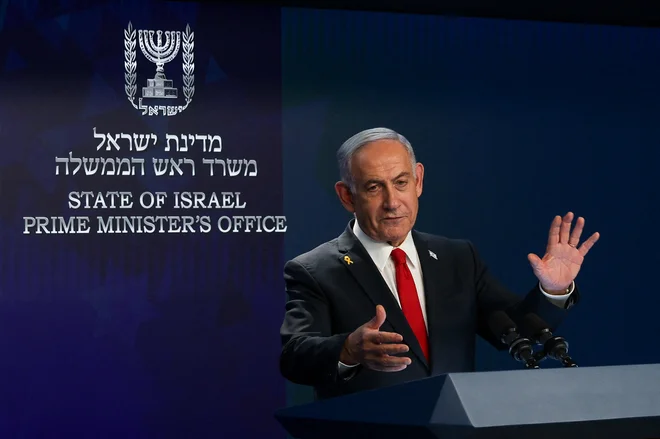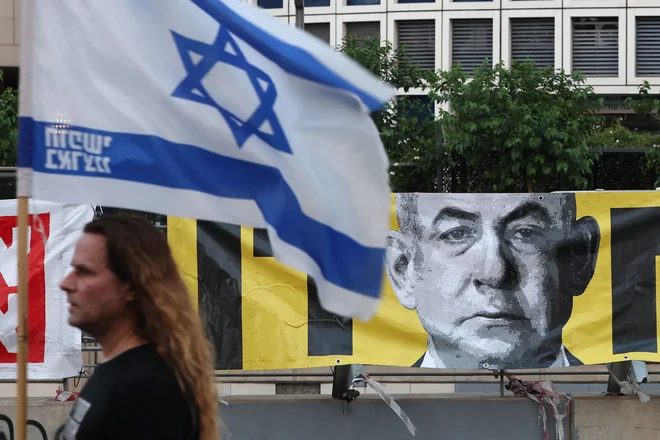Netanyahu before choosing: elections or compromise

A week after the Israeli opposition filed a proposal to dissolve parliament, the fate of the Prime Minister is Benjamin Netanyahu continues to hang in the air. While MEPs were preparing for the first of the four votes required to call early elections, the scenes continued in the scenes of the attempt to deal with a two -and -a -half -old coalition. Its possible breakdown could also affect further development bloody Israeli military offensive in Gaza.
Eyes were primarily on the party of chas and the Tora Judaism list (UTJ), the number of MPs in the second and third largest coalition partner. Last week, their leadership announced withdrawal from the government, due to a prolonged dispute related to the military obligation of ultra -organized students, who strongly oppose them in both parties. In response to the deepening of the government crisis, the opposition filed a proposal to dissolve the KNESET into a parliamentary procedure.
Netanyahu has been at the forefront of the Israeli government since the end of 2022. Photo: Ronen Zvulun/Reuters

Although the chasses and the UTJ in the Netanyahu government enjoy considerable power, both parties have in recent days set the exemption of ultra -organic military service students as a condition for further cooperation. Photo: Nir Elias/Reuters
Despite the yawning split within the coalition, analysts and observers did not dare to predict the first of the four votes. Of these, they were discouraged, among other things, by media reports of continuing intensive negotiations between the parties focused on finding a possible compromise that could delay the collapse of the coalition for at least a while.
It was much clearer what happens if the vote fails: the opposition would be able to file the next proposal to dissolve parliament in only six months. Netanjahu can also be hoped that he will be able to consolidate his coalition during any of the further votes provided for in the coming weeks – and conclude an agreement that would satisfy all the pages involved.
Exceptions opposed by most of the public
Although the chasses and the UTJ in the Netanyahu government enjoy considerable power, both parties have in recent days set the exemption of ultra -organic military service students as a condition for further cooperation. Most other coalition and parliamentary parties have been severely reluctant to such exceptions since the outbreak of war in Gaza. According to opinion polls, most Israelis are also opposed.

According to analysts, the call for proposals would certainly increase the pressure on Netanyahu to ensure the release of more Israeli hostages from the gauze and to conclude a temporary truce with the extreme Palestinian movement Hamas. Photo: Jack Guez/AFP
Netanyahu and his coalition partners, in responses to the dissolution of the government, insisted that the call for early elections was the last, which Israel needed during the war. The far right of the Minister of Finance Bezalel smotricagainst which more Western countries have introduced sanctions this week, he described the possible drop in the government as a « existential danger » for the future of Israel during the appearance in parliament. « History will not forgive anyone to push the country into elections during the war, » they are at AFP summarized Smotrich’s words. According to analysts, analysts would certainly increase the pressure on Netanyahu to ensure the release of more Israeli hostages from the gauze and perhaps conclude a temporary truce with the extreme Palestinian movement of Hamas. It would also be risky in terms of Prime Minister’s unpopularity between Israeli voters and possible loss of immunity that protects him from accusations of corruption.
According to all, they are well aware of the opposition, where, despite the risk associated with the parliament dissolution process, they maintained high expectations. « They can delay, invent and pronounce /… / but the truth cannot be avoided, » he stressed Miki leftMP and former Speaker of Parliament from the largest opposition party Je Atid. “This government is over, with this princess over. The public deserves more and will get more. «
The Israeli army again fired at the people waiting for the centers for distributing humanitarian aid in Gaza, the civil protection there said. She added that 31 people were killed and about 200 were injured. In total, according to power, 57 people were killed throughout Gaza, who went for help. The number of all killed at the Centers for Division of the Assistance of the American-Israeli Humanitarian Foundation for Gaza (GHF), which started operating at the end of May, has thus climbed 224. The GHF Foundation has announced that it has distributed about 34,000 crates of food in three open centers today, which accounts for 2.5 million. Were






:format(jpeg):fill(f8f8f8,true)/s3/static.nrc.nl/wp-content/uploads/2019/07/fritshome.png)
